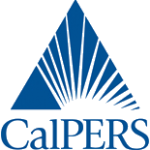 The American Bar Association, the largest legal trade organization with over 400,000 members worldwide, in more than 3,500 entities. ABA has long been a leader in promoting more effective corporate governance and rule of law, focusing attention on the challenges of global climate change, environmental pollution, renewable energy, sustainable development, and human rights.
The American Bar Association, the largest legal trade organization with over 400,000 members worldwide, in more than 3,500 entities. ABA has long been a leader in promoting more effective corporate governance and rule of law, focusing attention on the challenges of global climate change, environmental pollution, renewable energy, sustainable development, and human rights.
Indeed, the international legal community is singularly well-positioned to analyze how a more humane and economically viable corporate value system could be integrated into existing legal and policy frameworks, and to support a more holistic, humane approach to advising, litigating, and advocating for policy reform.
 The International Environmental Law Committee (“IELC”) of the influential ABA Section of International Law (“SIL”) has recently focused upon educating ABA members on Climate Change and Sustainability Financial Reporting (“CCSFR”).
The International Environmental Law Committee (“IELC”) of the influential ABA Section of International Law (“SIL”) has recently focused upon educating ABA members on Climate Change and Sustainability Financial Reporting (“CCSFR”).
 In December 2017, the IELC published a special CCSFR Newsletter publication.
In December 2017, the IELC published a special CCSFR Newsletter publication.- In October 2017, the IELC presented a program at the ABA SIL Fall 2017 Conference in Miami entitled: “Climate Change and Sustainability Financial Reporting: How Recent Legal and Regulatory Developments Are Impacting Latin America Issuers, Investors, and Capital Markets.”
Linda M. Lowson, IELC Vice-Chair, Editor-in-Chief of the CCSFR Newsletter, and Chair of the Miami Conference CCSFR program, explains the importance of CCSFR:
“ESG / sustainability risks and opportunities, and their impacts, are now firmly on the agendas of corporate boards and institutional investors worldwide. These issues – and the reporting of these issues – are directly affecting, and spurring a re-evaluation of, corporate business models, supply chains, customer and competitive market dynamics, and financial metrics, for both issuers and investors. This reassessment in turn is transforming equity, fixed-income, private equity, and real estate capital markets.”
In the CCSFR Newsletter, a strong theme throughout the perspectives offered was the Guidance issued in June 2017 by the Financial Stability Board (“FSB”) Task Force on Climate-Related Financial Disclosures (TCFD).
The issuance of this Guidance was an FSB remit received from G20 Finance Ministers and Central Bank Governors, acknowledging that climate-related impacts are creating an emerging and growing global financial system systemic risk.
The Guidance is intended to address gaps and deficiencies, and promote greater consistency and reliability, in the current CCSFR environment.
The detailed Guidance recommends that a range of potential climate change risk scenarios be considered, each including climate-related physical, technological, policy, legal, regulatory, and other risks of transitioning to a lower-carbon economy. This complex and sophisticated scenario analysis will be challenging for many if not most issuers.
The Guidance, recognizing this higher reporting bar, has suggested a five-year time frame for gradual implementation by issuers in their public financial filings.
Editor Lowson further explains: “Climate-related financial reporting is here to stay. The entrance of FSB and G20 oversight marks a transition in CCSFR to mandatory reporting requirements, and to an upgrading of CCSFR disclosure, with the data quality control, reporting process rigor, and ‘governance guardrails’ to which financial reporting is subject under securities laws and regulations worldwide.”
The Guidance has received positive, supportive responses from the Global Reporting Initiative (GRI), CDP, and Principles for Responsible Investment (PRI) frameworks, which will facilitate the speed and depth of issuer implementation.
In addition, sovereign policymakers and regulators — including in the EU, United Kingdom, France, Australia, and Canada — are supporting the Guidance by referencing it in their regulations and guidance.
For more information, see Linda Lowson’s Memorandum: “FSB TCFD Guidance on Climate-Related Financial Disclosures: Regulatory and Market Responses”, available at: https://corpgov.law.harvard.edu/2017/10/30/fsb-guidance-on-climate-related-financial-disclosures-regulatory-and-market-responses/#more-102444.
This Memorandum summarizes and comments upon responses to the Guidance from financial regulators, issuers, institutional investors, credit rating agencies, and voluntary sustainability reporting frameworks.
The topics covered in the December 2017 CCSFR newsletter include:
- “FSB Guidance on Climate-Related Financial Reporting: Game-Changer for Voluntary Sustainability Reporting”, authored by the ABA 2016 Working Group on Climate Change and Sustainability Financial Reporting (Robert Blanchard; Kristie Blasé; Karen Bridges; Naicheng Deng; Virginia Harper Ho; Linda Lowson; Jeanne Solomon; Paul Wehrman).
- “FSB Guidance: Regulatory and Market Responses”, authored by Linda M. Lowson.
- “Climate-Competent Boards: An Emerging Priority for Shareholders and Directors”, authored by Edward Kamonjoh (former Head of ESG Research at ISS) and Nell Minow (former founder of The Corporate Library, now part of MSCI).
- “Climate Change as a Matter of Corporate Governance: An Investor Perspective”, authored by George Dallas, Policy Director of the International Corporate Governance Network (ICGN), an organization that represents institutional investors with US$26 trillion in AUM.
- “Human Right to a Clean and Healthy Environment: Compliance Down the Pipeline”, authored by Stephanie Trager and Emily Bergeron.
In March 2016, an ABA Working Group was formed to launch a Sustainability Financial Reporting Policy Initiative, with the intent of providing an international legal perspective to the FSB TCFD during their development of the Guidance.
This was the first time the international legal community entered the global public dialogue on Sustainability Financial Reporting — a voice which has been conspicuously absent and which many believe is essential to developing solutions to current Sustainability Financial Reporting problems.
This Working Group, launched and chaired by Linda Lowson, submitted a Comment Response in June 2016 to the TCFD on the draft Guidance.
See the G&A Institute To the Point! brief on the FSB / TCFD here: CLIMATE CHANGE-RELATED DISCLOSURE: The Financial Stability Board’s Task Force on Climate- Related Financial Disclosures Could Affect Your Company’s Important Financial Disclosure & Filings — And Your Relationship With Lenders, Investors, Insurers…
For More Information
The International Environmental Law Committee of the ABA Section of International Law serves as a forum for dialogue and an educational resource for the community of private practice, in-house, non-profit, academic and government lawyers practicing or interested in environmental law worldwide.
Key Concept:
Climate Change and Sustainability Financial Reporting, post-COP21, now intersects environmental law.
For information or questions about CCSFR, or the CCSFR publication, or participation in the IELC, please contact Linda Lowson at: lmlowson@gmail.com.
She is Chief Executive Officer of the Global ESG Financial Regulatory Academy, a leading expert and financial regulatory and capital market advisor in Global Climate-Related and Sustainability Financial Reporting.
More information is available at www.linkedin.com/in/globalregulatoryacademy.
Ms. Lowson is also a Fellow of the Governance & Accountability Institute, and a valued colleague of the G&A team members. We rely on her for encyclopedic knowledge of both U.S. and international corporate disclosure and reporting rules and regulations.
G&A Institute Perspectives
The American Bar Association has been an influential voice on legal, financial, business, and societal issues for decades. Analysis and consideration of ESG (environmental, societal, and corporate governance) issues from a legal perspective, including in particular financial disclosure and reporting of these issues globally, is likely to be an increasing focus within ABA committees, task forces, and other ABA bodies and initiatives.
For corporate managers, the topic of corporate sustainability and sustainability reporting is certain to be raised internally and will be of increasing importance.
We suggest that the considerable work and knowledge outlined here is informative and helpful for your internal discussions, and that this work be shared with your C-Suite, Board, legal and compliance heads, and external auditors. We will continue to share relevant ABA developments in this platform and other G&A communications.
Addendum
- ABA SEER Sustainability Framework for Law Organizations: https://www.americanbar.org/content/dam/aba/administrative/nr/projects/model_law_policy/aba_model_law_policy_rev17.authcheckdam.pdf
If you are interesting in learning more about the work of Governance & Accountability Institute and its portfolio of resources, tools and service offerings, please click here





